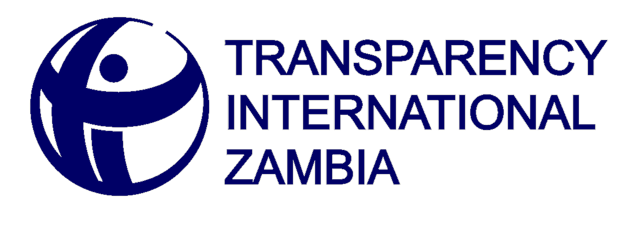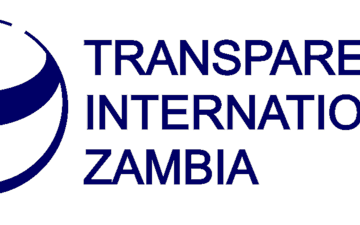Greetings fellow citizens, and welcome to the second of our weekly updates from our 2021
Elections Project.
I wish to remind you again that we will be giving these updates every Tuesday to highlight both
positive and negative observations that we are noting through our 2021 Elections Project. In
addition to raising civic awareness around different aspects of the electoral process, our hope is
that these updates will also enable key stakeholders in the process to take stock of how they
are faring, and to take corrective action where necessary in order to enhance the prospects of
holding free and fair general elections on 12th August 2021.
The focus of this week’s update will be the continued selective application of the Public Order
Act; the uneven access to public media; and the anti-corruption strategies in the manifestos of
political parties.
- Selective application of the Public Order Act
TI-Z has noted with continued concern that opposition political parties have continued to
complain of selective application of the Public Order Act by the Zambia Police Service. The
examples of this unfortunate state of affairs continue to abound almost on an everyday basis.
Recently, the Zambia Police allowed the Patriotic Front (PF) to host a large meeting welcoming
Mr. Chishimba Kambwili back into the party with limited police presence, which could have been
a factor in the violence that was witnessed at the event. At the same time, the Police sent a
huge battalion of armed officers to stop the United Party for National Development (UPND) from
holding an event where they were opening a newly completed party facility. For us, this was a
clear case of misapplication of state resources. This unfortunate scenario was worsened by the
2
fact that the police vehicle that took officers to the PF Secretariat to intervene in the unfolding
violence ended up being damaged by the unruly cadres.
TI-Z would like to urge the Zambia Police Service not to act in ways that will contribute to the
building of political tension in this election season through the selective application of the Public
Order Act or indeed any other law that they are mandated to enforce. We wish to remind the
Police that they have an obligation to serve all citizens impartially, and they must therefore go
out of their way to treat all political players regardless of party affiliation in a professional and
objective manner that will help to build confidence not just in the Police’s ability to maintain law
and order, but also to contribute to a more accountable and transparent electoral process. Any
other approach in this regard will only serve to further limit the already constrained civic space
available for key players in the electoral process, and will ultimately undermine the integrity of
the process in its entirety. - Uneven access to public media
There is no doubt that fair access to the media is an important prerequisite for the holding of
free and fair elections. This is because the media have the potential to control the narrative in
terms of what issues become topical in the context of an election season such as the one we
are in. TI-Z has however observed with concern the tendency by public media houses to not
cover all political players in some form of equal measure. It is apparent that political players that
are aligned to the ruling PF have continued to enjoy near unlimited coverage in the public
media, while the same can hardly be said for those with an inclination to opposition political
parties. The few times where opposition parties have been covered in the public media have
been cases of negative coverage. In our quest to understand this phenomenon better, we will
be conducting a detailed analysis of the media coverage in the period leading up to polling day
on 12th August, and we will be sharing this analysis as we draw closer to election day.
We however wish to already urge public media houses to introspect and take a principled stand
to cover all political players in an equal and objective manner. We further urge the Independent
Broadcasting Authority (IBA) to give a public assurance that employees of public media houses
will be protected from any potential retribution that may arise from their being objective in
covering different political players, particularly those from opposition political parties. The media
– both public and private – have a critical role to play in the promotion of transparency,
3
accountability and integrity in the electoral process, and we are confident that they will play that
role with the highest degree of professionalism and objectivity. - Anti-corruption strategies in party manifestos
Being an organization that is dedicated to the fight against corruption and the promotion of good
governance, TI-Z has taken particular interest in what different political parties have said in their
respective manifestos on the issue of corruption and how they intend to deal with it. In this vein,
we are currently undertaking an analysis of the manifestos of the different political parties as
and when they get released, and we will use these weekly updates to share our thoughts on
how the issue of corruption has been reflected in these documents. For this week, we will focus
on the manifestos of the ruling PF and the UPND.
To begin with, TI-Z wishes to commend the two political parties for even thinking about
incorporating anti-corruption strategies into their party manifestos ahead of the 2021 general
elections. At a very basic level, this shows that there is some level of realization about the
importance of tackling the corruption problem that we have grappled with as a country for a long
time now.
Our analysis of the PF manifesto revealed that among the core values mentioned is “Zero
tolerance for corruption, tribalism and violence” and that the party plans to investigate, and
speedily prosecute cases of abuse of public resources and corruption reflected in the Auditor
General’s report. Additionally, they plan to combat corruption through the Integrity Committees
in all public institutions. Our view is that the PF is in a very awkward position because the reality
of the last ten years is staring at them, and everything that they say about corruption will
inevitably be seen in the light of what Zambians have witnessed over the last ten years that the
party has been in power. We would like to reiterate the call that we made last week for the PF to
begin by giving an account of what they have done with respect to the fight against corruption
over the last decade that they have been in power. Over this period, Zambia has not fared well
on the Corruption Perception Index, with our score dropping by one point in each of the last five
years since 2016. TI-Z therefore holds the considered view that it is not enough for the PF to
make cosmetic promises in their manifesto about how they will deal with corruption, when they
have already had ten years to implement everything they are saying in the manifesto. We
reiterate that it would be of great benefit to citizens for the PF to first account for their anticorruption efforts over the last decade, before making new promises to the Zambian people.
4
The UPND manifesto, on the other hand, appears to have made a deliberate decision to elevate
the anti-corruption fight to the top of its agenda which has been summarized in the acronym
“CHANGE”, where “C” Stands for Corruption-free. According to the manifesto, the party plans to
strengthen the Anti-Corruption Commission (ACC), establish fast-track anti-corruption courts,
increase access to information, facilitate for annual declarations of new wealth, and conduct
lifestyle audits. TI-Z is of the view that while the PF suffers from a problem of an existing record
as far as the anti-corruption fight is concerned, the UPND has the opposite problem, which is
that they will have to convince citizens of their ability to deliver on these promises, with no track
record of being in government for citizens to make reference to. Our view is that this particular
reality should have prompted the UPND to be much more comprehensive in stating how exactly
they will do the things they are promising to do as far as the fight against corruption goes. Our
call to the UPND is therefore that they should go beyond the promises they have outlined in
their manifesto to state the specific mechanisms that will enable them to actualize those
promises in order to give efficacy to the fight against corruption should the party form
government in August.
All in all, TI-Z welcomes the effort by both the PF and UPND to include the issue of corruption in
their manifestos, and we urge both parties to pay attention to the respective challenges they will
face in convincing Zambians to buy into their proposed anti-corruption interventions.
Last but not least, as the official campaign period starts this week, we would like to make a
strong appeal to all players across the political spectrum to exercise civility in their discourse
and engagement throughout this period, and to also avoid any form of corruption. Over the
years as a country, we have had our fair share of political campaigns that are premised on
corruption, character assassination, tribalism, and violence among other things, and we
challenge all political parties to change this narrative this time around.
Thank you for tuning in to our update today, and we hope that you will join us for our next
update next Tuesday.



